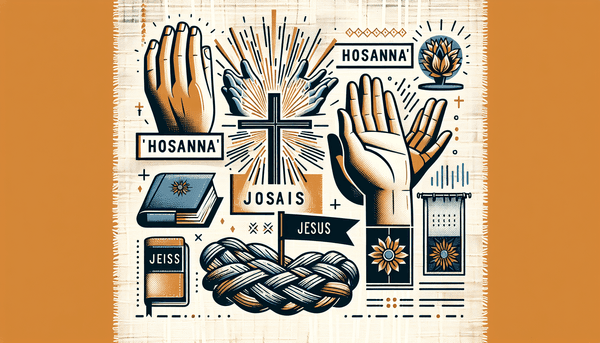The Supremacy of Christ in Colossians: An Exegesis
In Colossians 1:15-23, the Apostle Paul provides a magnificent exposition of Christ's supremacy. Jesus is described as the image of the invisible God and the firstborn over all creation, through whom all things were made (John 1:1-3). This passage not only affirms His role in creation but also His authority as the head of the Church. Moreover, it is through Christ’s death and resurrection that reconciliation with God is made possible, offering peace through His blood, shed on the cross (Ephesians 1:22-23). Believers are called to remain grounded and steadfast in their faith, not moved away from the hope of the gospel. This echoes the message of Philippians 2:9-11, which speaks of God exalting Christ’s name above every name, and Hebrews 1:3, which depicts Christ as the radiance of God's glory and the exact representation of His being.
Jesus in Christianity and Islam: A Dialogue of Understanding
Engaging in interfaith dialogue necessitates respect and understanding of differing viewpoints. When conversing with adherents of Islam, it's important to recognize their view of Jesus—referred to as Prophet Isa—as a revered human messenger of Allah, not as the Son of God or part of a divine trinity. They also deny Jesus' crucifixion, believing instead that he was raised to heaven by God. However, the Christian faith proclaims Jesus as more than a prophet. He is the Son of God, the Savior of humanity, whose death and resurrection are central to Christian doctrine (John 3:16). Through respectful dialogue, common ground can be found, such as the shared belief in Jesus as a significant religious figure. By focusing on shared values and the command to share faith with gentleness and respect (1 Peter 3:15), believers can engage in meaningful exchanges that honor both traditions while remaining true to their convictions.
Conclusion
In conclusion, the Bible's narrative arc from the Old to the New Testament reveals a rich tapestry of divine revelation, culminating in the person and work of Jesus Christ. As we have explored, the Old Testament serves as a foundation for the New, both testifying to God's redemptive plan through Jesus. Understanding salvation and the transformative power of a relationship with God is crucial in this context, as illustrated in Colossians 1:15-23, which highlights Christ's preeminence in all things and His role in reconciling humanity to God. Furthermore, understanding these concepts is essential for engaging in interfaith dialogue, particularly with our Muslim neighbors who hold Jesus in high regard as Prophet Isa. As we strive to understand and articulate our faith, may we do so with the wisdom and love that is reflective of the teachings of Christ Himself.
FAQ
Q: How do Christians understand the relationship between the Old Testament and the New Testament?
A: Many Christians believe that the Old Testament contains prophecies, symbols, and foreshadowings that are fulfilled in the New Testament, particularly in the life, death, and resurrection of Jesus Christ. They see the New Testament as the fulfillment of the promises and teachings found in the Old Testament and emphasize the continuity and interconnectedness of the two parts of the Bible.
Q: What is the Old Testament and the New Testament?
A: The Old Testament is the first part of the Christian Bible, comprising the religious writings and history of the ancient Hebrew people, including the Torah, historical books, wisdom literature, and prophetic books. The New Testament is the second part of the Christian Bible, containing the teachings and the life of Jesus Christ, as well as the early Christian Church's writings, including the Gospels, Acts, Epistles, and Revelation.
Q: What does Colossians 1:15-23 tell us about Jesus Christ?
A: Colossians 1:15-23 describes Jesus Christ as the image of the invisible God, the firstborn over all creation, and the one through whom all things were created. It emphasizes His preeminence, His role in reconciling all things to God through His death and resurrection, and the need for believers to continue in their faith, grounded and steadfast.
Q: Can you explain John 17:3 and its significance?
A: John 17:3 is a part of Jesus' prayer where He defines eternal life as knowing the only true God and Jesus Christ, whom God has sent. This verse is significant because it underscores the importance of recognizing both the Father and the Son in the pursuit of eternal life, and it reflects Jesus' acknowledgment of His relationship with God the Father and His mission on earth.






